Cover
Copyright
Credits
About the Author
About the Reviewers
www.PacktPub.com
Table of Contents
Preface
1: Getting Started with Parallel Computing and Python
Introduction
The parallel computing memory architecture
Memory organization
Parallel programming models
How to design a parallel program
How to evaluate the performance of a parallel program
Introducing Python
Python in a parallel world
Introducing processes and threads
Start working with processes in Python
Start working with threads in Python
2: Thread-based Parallelism
Introduction
Using the Python threading module
How to define a thread
How to determine the current thread
How to use a thread in a subclass
Thread synchronization with Lock and RLock
Thread synchronization with RLock
Thread synchronization with semaphores
Thread synchronization with a condition
Threads synchronization with an event
Using the with statement
Thread communication using a queue
Evaluating the performance of multithread applications
3: Process-based Parallelism
Introduction
How to spawn a process
How to name a process
How to run a process in the background
How to kill a process
How to use process in a subclass
How to exchange objects between processes
How to synchronize processes
How to manage a state between processes
How to use a process pool
Using the mpi4py Python module
Point-to-point communication
Avoiding deadlock problems
Collective communication using broadcast
Collective communication using scatter
Collective communication using gather
Collective communication using Alltoall
The reduction operation
How to optimize the communication
4: Asynchronous Programming
Introduction
Using the concurrent.futures Python modules
Event loop management with Asyncio
Handling coroutines with Asyncio
Task manipulation with Asyncio
Dealing with Asyncio and Futures
5: Distributed Python
Introduction
Using Celery to distribute tasks
How to create a task with Celery
Scientific computing with SCOOP
Handling map functions with SCOOP
Remote Method Invocation with Pyro4
Chaining objects with Pyro4
Developing a client-server application with Pyro4
Communicating sequential processes with PyCSP
Using MapReduce with Disco
A remote procedure call with RPyC
6: GPU Programming with Python
Introduction
Using the PyCUDA module
How to build a PyCUDA application
Understanding the PyCuda memory model with matrix manipulation
Kernel invocations with GPUArray
Evaluating element-wise expressions with PyCUDA
The MapReduce operation with PyCuda
GPU programming with NumbaPro
Using GPU-accelerated libraries with NumbaPro
Using the PyOpenCL module
How to build a PyOpenCL application
Evaluating element-wise expressions with PyOpenCl
Testing your GPU application with PyOpenCL
Index
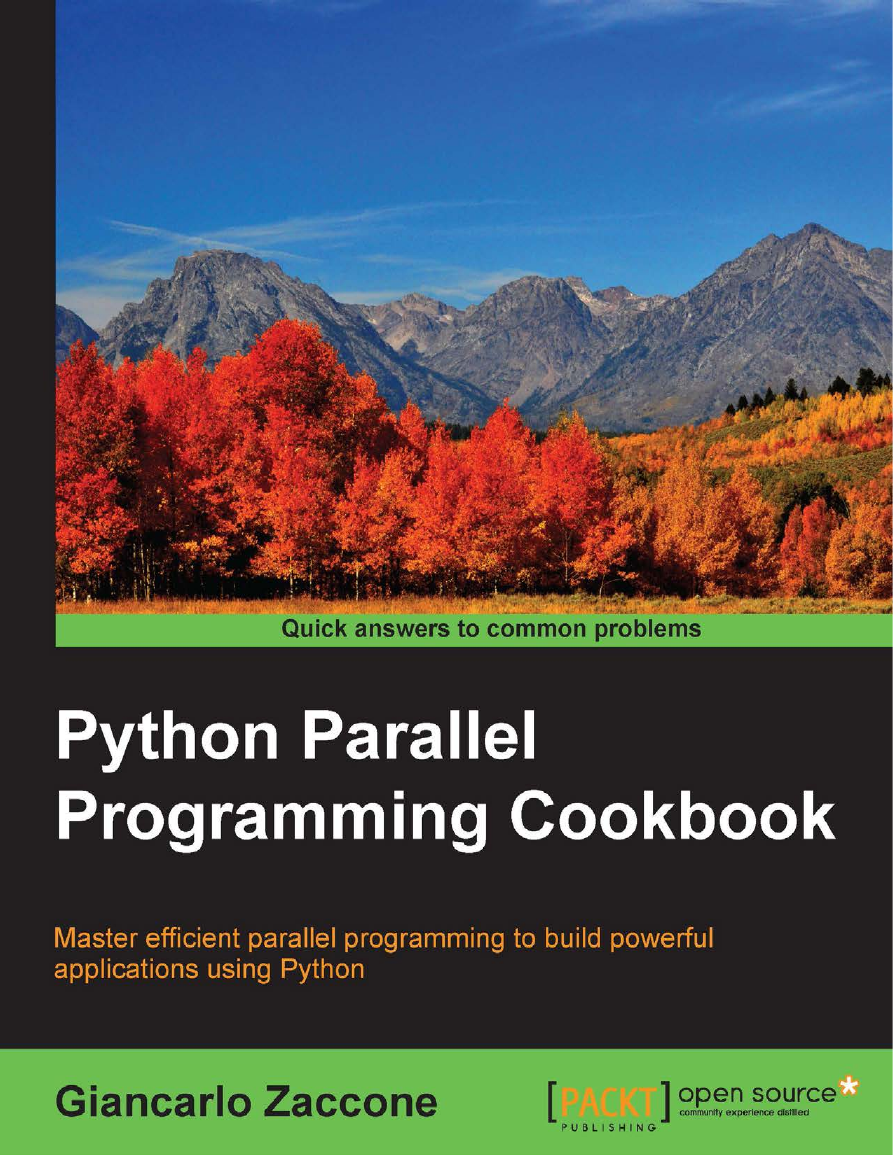
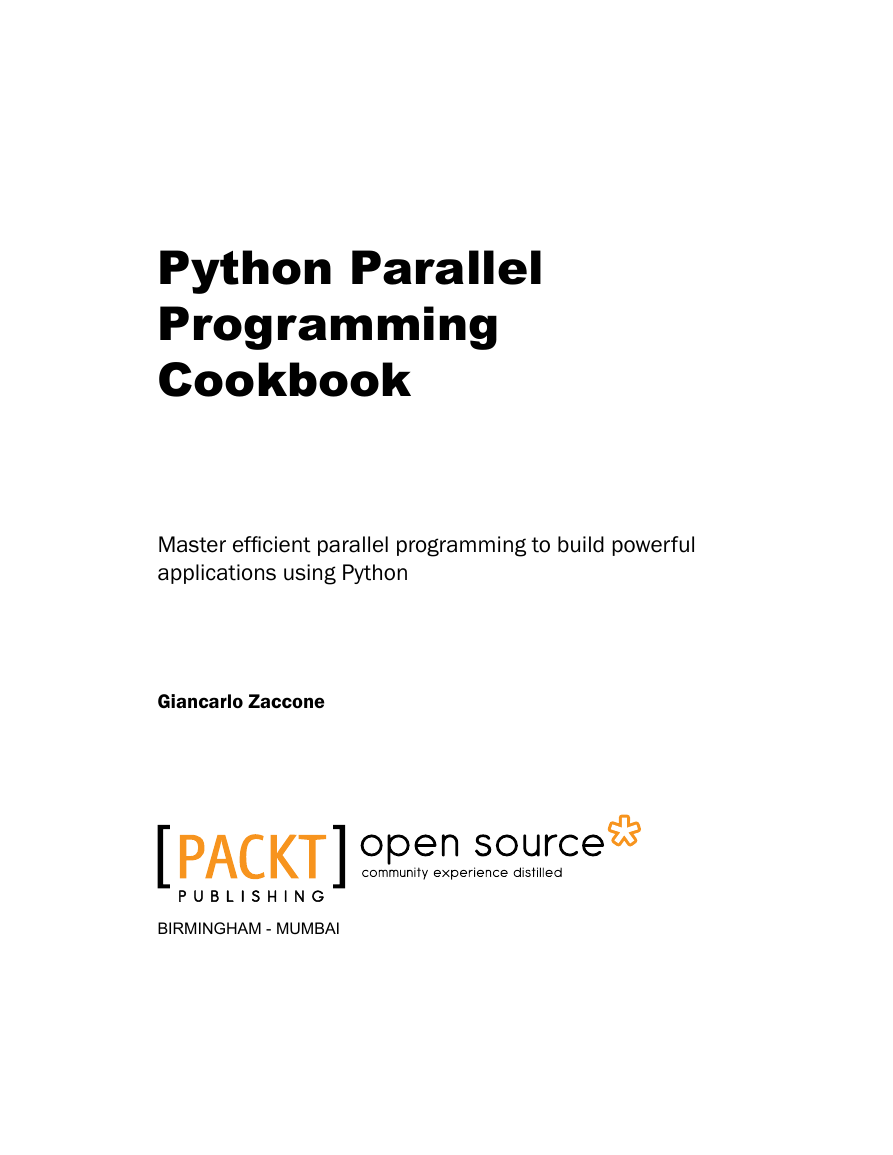
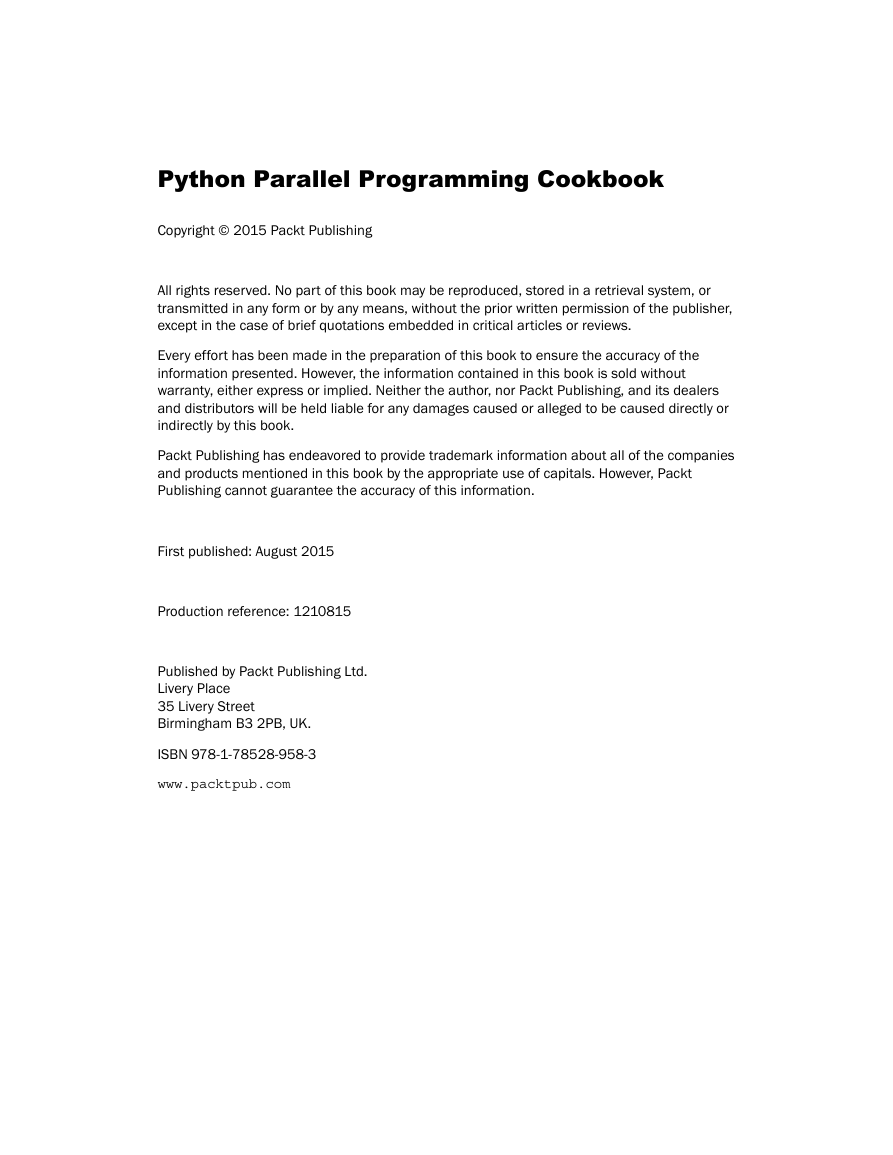
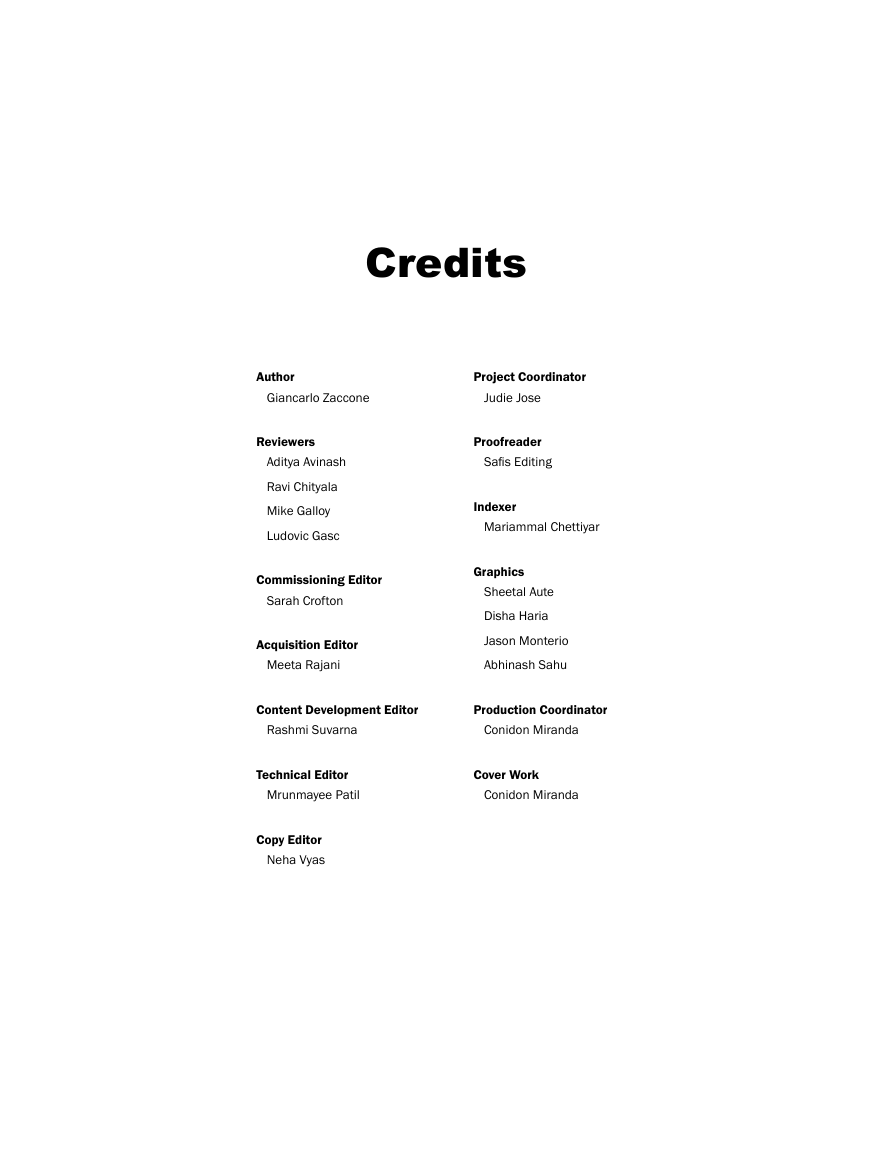

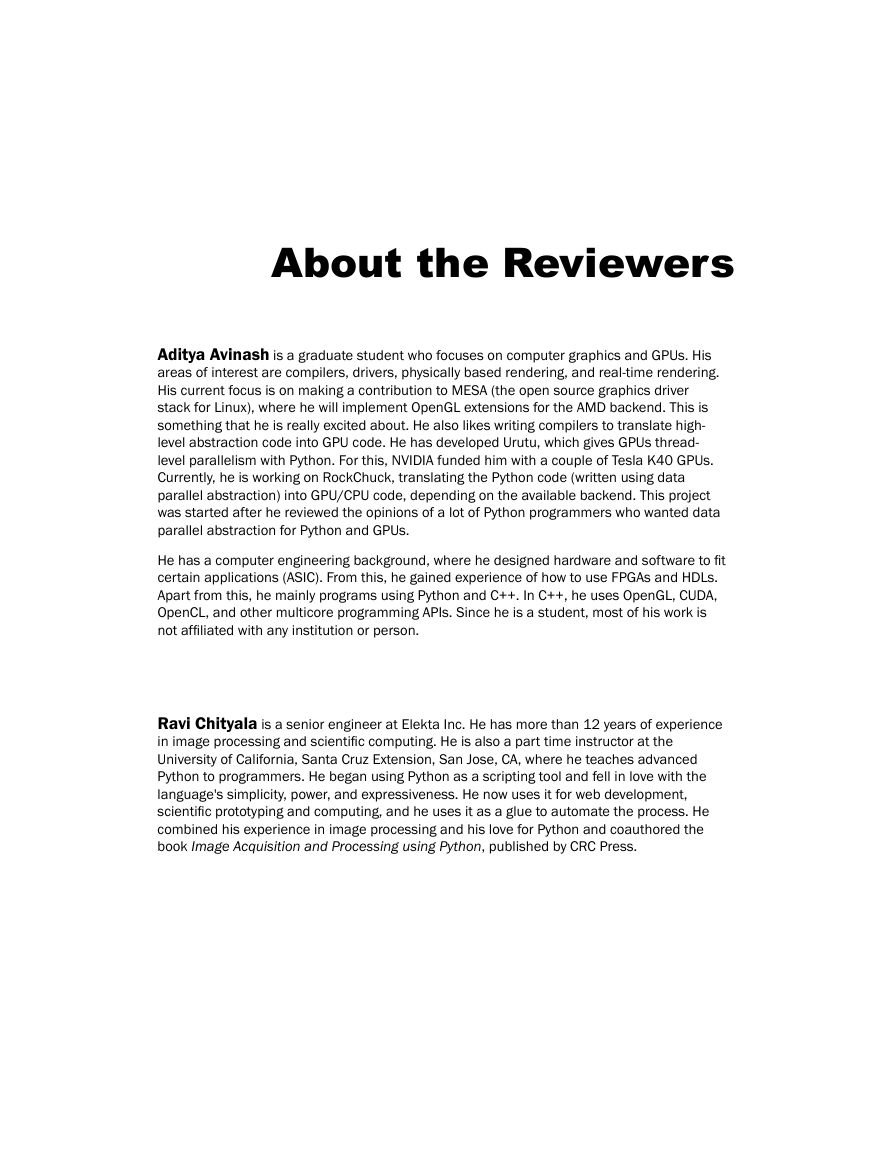
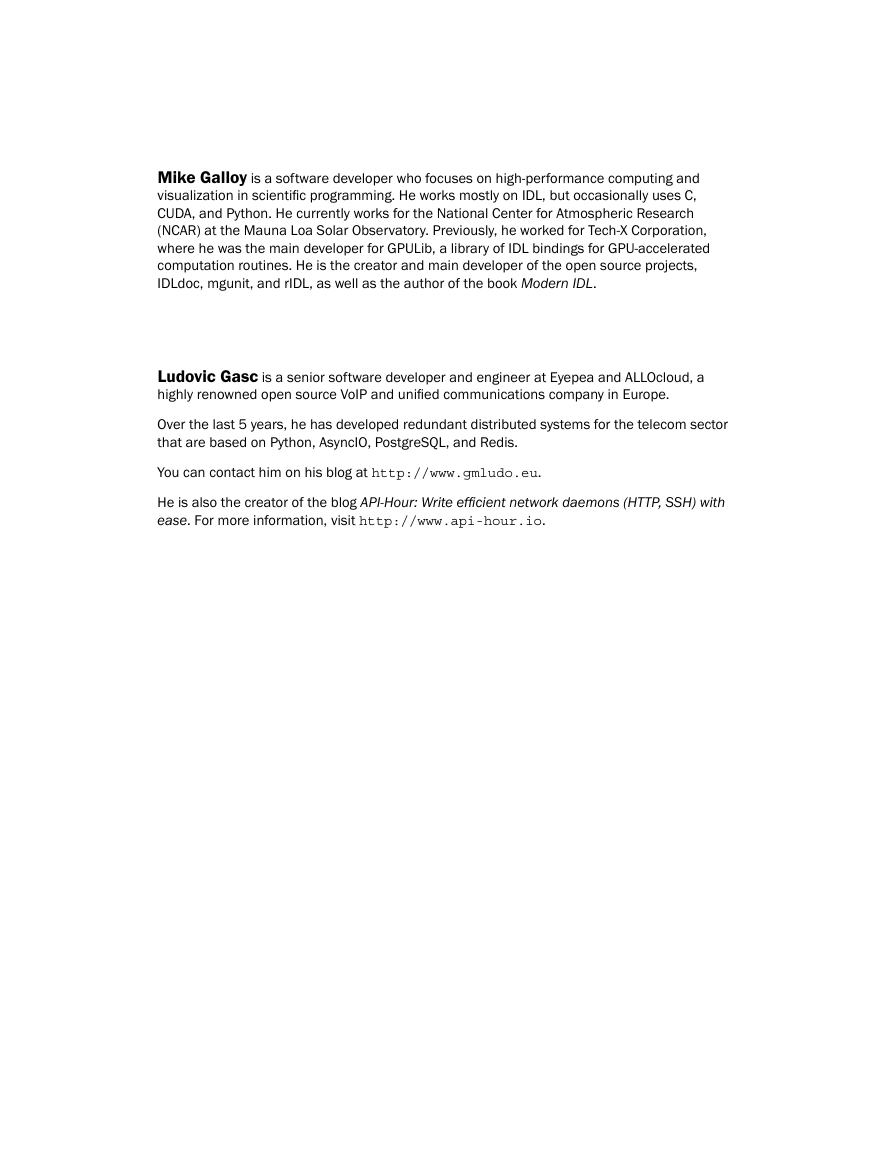
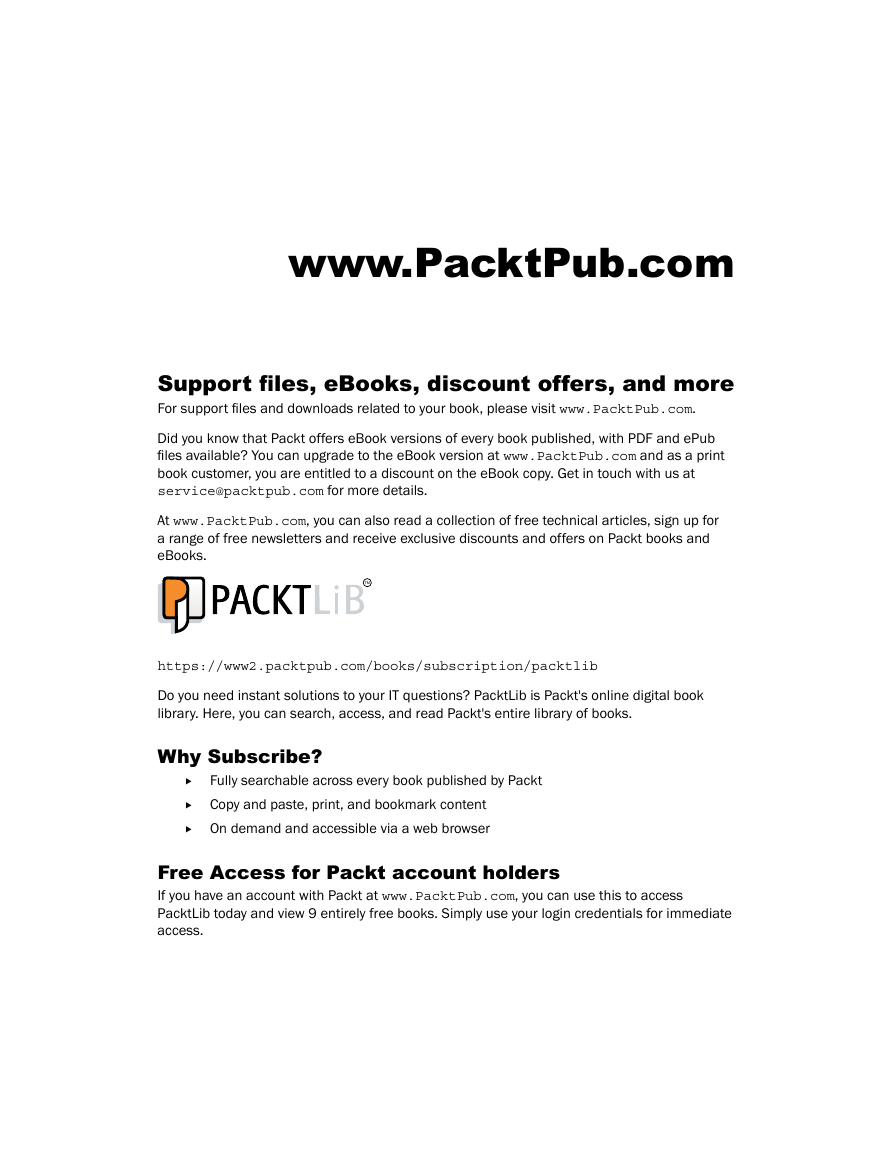








 2023年江西萍乡中考道德与法治真题及答案.doc
2023年江西萍乡中考道德与法治真题及答案.doc 2012年重庆南川中考生物真题及答案.doc
2012年重庆南川中考生物真题及答案.doc 2013年江西师范大学地理学综合及文艺理论基础考研真题.doc
2013年江西师范大学地理学综合及文艺理论基础考研真题.doc 2020年四川甘孜小升初语文真题及答案I卷.doc
2020年四川甘孜小升初语文真题及答案I卷.doc 2020年注册岩土工程师专业基础考试真题及答案.doc
2020年注册岩土工程师专业基础考试真题及答案.doc 2023-2024学年福建省厦门市九年级上学期数学月考试题及答案.doc
2023-2024学年福建省厦门市九年级上学期数学月考试题及答案.doc 2021-2022学年辽宁省沈阳市大东区九年级上学期语文期末试题及答案.doc
2021-2022学年辽宁省沈阳市大东区九年级上学期语文期末试题及答案.doc 2022-2023学年北京东城区初三第一学期物理期末试卷及答案.doc
2022-2023学年北京东城区初三第一学期物理期末试卷及答案.doc 2018上半年江西教师资格初中地理学科知识与教学能力真题及答案.doc
2018上半年江西教师资格初中地理学科知识与教学能力真题及答案.doc 2012年河北国家公务员申论考试真题及答案-省级.doc
2012年河北国家公务员申论考试真题及答案-省级.doc 2020-2021学年江苏省扬州市江都区邵樊片九年级上学期数学第一次质量检测试题及答案.doc
2020-2021学年江苏省扬州市江都区邵樊片九年级上学期数学第一次质量检测试题及答案.doc 2022下半年黑龙江教师资格证中学综合素质真题及答案.doc
2022下半年黑龙江教师资格证中学综合素质真题及答案.doc